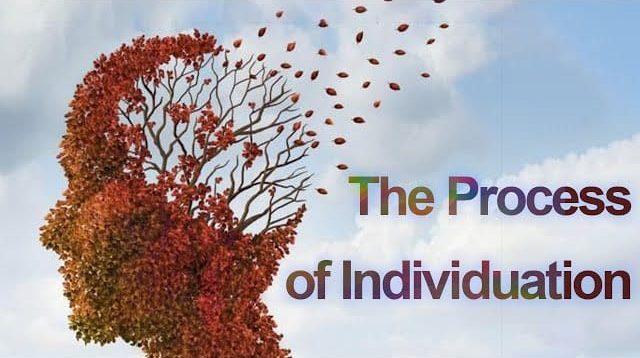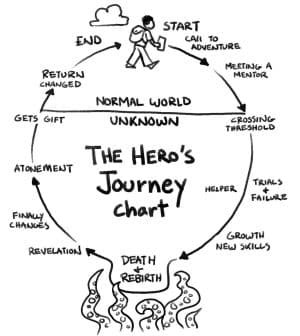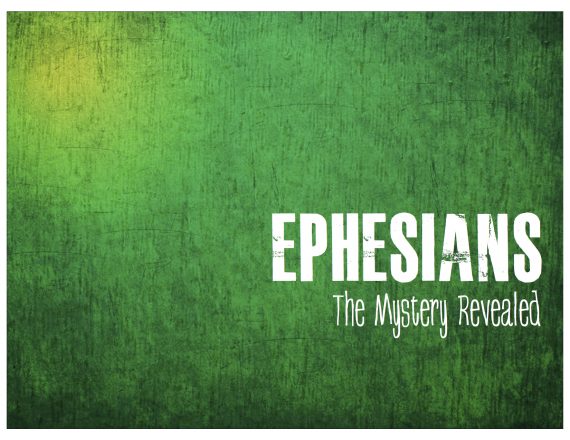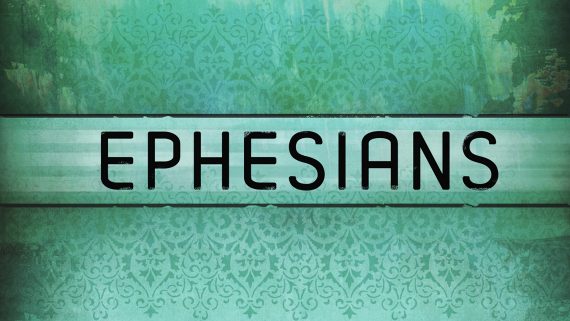 Lots of Christians think Carl Jung was a heretic. I’ll be the first to admit he does write some pretty provocative ideas. But I have also found great spiritual truths and insights into the nature of God, the person and work of Jesus Christ, and helpful ways of reading Scripture with better understanding.
Lots of Christians think Carl Jung was a heretic. I’ll be the first to admit he does write some pretty provocative ideas. But I have also found great spiritual truths and insights into the nature of God, the person and work of Jesus Christ, and helpful ways of reading Scripture with better understanding.
Most of all, I have found in the writings of Jung some of the deepest help for my soul. His life work was to map out the psyche (the soul), and his work in this regard can be greatly beneficial for Christians as we seek to tune our soul to the working of the Holy Spirit and the presence of God in the world.
I recently found the following article online at the website of Lambert Dolphin (someone I have respected and learned from for years), and it resonated with me, so I am re-posting it below. See the Bibliography at the end for links to referenced books. One volume not mentioned in the article below, which I have found quite helpful, is Jung and the Bible by Wayne Rollins.
INDIVIDUATION
AND THE BIBLICAL CONCEPT OF WHOLENESS
By Kenny Ammann
What is life really about? Why on earth are we here? While it is true that many have discovered there is more to life than meets the eye, surprisingly few people are really concerned about these questions. Yet each of us has been given just one human lifetime to discover who we are, why we are here, and where we are going.
Perhaps the reason that seemingly few seek answers to such issues is that many believe there are no answers. Personally I find myself plagued with these thoughts every day. I think this is the reason I find Jung’s concept of individuation so fascinating. I believe becoming whole and understanding oneself rates first among priorities.
I agree with Jung, who seems to say the unconscious is not our enemy, but is always striving to produce wholeness. Evidence of this may be found in the lives of people, in which people often seem to be consciously or unconsciously searching for some kind of meaning. Much of our humanity depends on having purpose in who we are and what we do. Unfortunately, many who look to the world for answers fail in their depressing search, because the world produces conformity. Individuation is the idea of leaving the the collective thinking of one’s upbringing and embarking on a path leading to an understanding of one’s own self and appropriate relation to others, such that both the individual and others will benefit. Jung’s concept of individuation is not an easy process to define, especially when one attempts to do so from solely a Western, Judeo-Christian paradigm. None of Jung’s teachings are limited to this viewpoint. Instead, Jung accomplishes the extraordinary task of bridging East and West by successfully integrating both drastically different paradigms into the way of individuation. He seems to see the heart of Eastern and Western viewpoints as complementary toward one another, much as male and female persons perceive truth and set their priorities in different ways, both of which are valid.

In order to examine the Jungian bridge between East and West, I will stereotype the cultures. This in no way is an attempt to minimize or limit either philosophy, but merely an effort to further understand the Jungian paradigm. Western civilization originates from Greek and Roman ideas, values, philosophy, and government. When one thinks of Western culture, one thinks of science, industry, technology, progress (or what Westerners tend to think is progress), exploitation of resources, carelessness toward nature and naivete with regard to man’s relationship with nature. Second, Eastern stereotypes include contemplation, meditation, mysticism, and harmony with nature. In the same way that the West would be considered experts on outer space, East could be considered experts on “inner space.” Western thought is primarily concerned with analytical knowledge, while Eastern thought prefers inner, mystical knowledge- for example, the path of the Eastern guru. In Eastern philosophy there is the concept of the Tao, the way of harmony between opposites. Thus, Zen Buddhists seek to live in a way where there is harmony between heaven and earth-for example, the path of harmony between the King and his people, between male and female, or between heaven (yang) and earth (yin). These concepts are illustrated in the Chinese book of philosophy, the I Ching.
Jung seems to see religion necessary in the process of individuation; not in the confessional or creedal sense such as being a Baptist or a Buddhist, but rather in the experiential sense. He writes,
“I want to make clear that by the term ‘religion’ I do not mean a creed. It is, however, true that on the one hand every confession is originally based upon the experience of the numinous and on the other hand upon the loyalty, trust, and confidence toward a definitely experienced numinous effect and the subsequent alteration of consciousness: the conversion of Paul is a striking example of this. ‘Religion,’ it might be said, is the term that designates the attitude peculiar to a consciousness which has been altered by the experience of the numinous” (Psychology & Religion; C. G. Jung, pg. 6).
 Therefore Jung integrates religion into the process of individuation from both Eastern Unitarian thought and his own concept of God from his European upbringing. Morton T. Kelsey, in the twelfth chapter of his book entitled Psychology, Medicine & Christian Healing, shows how it was Jung who integrated religious experience into psychological thought more fully than any other psychologist. Kelsey explains how “Jung lived to be almost 86 and wrote until three weeks before his death; during the final 15 years of his life-from the time of a nearly fatal illness until his death-Jung’s main preoccupation was the significance of religious experience for psychiatry and psychology” (Psychology, Medicine & Christian Healing; Morton T. Kelsey, pg. 241). Furthermore, in 1932 Jung gave a talk to the Alsatian Pastoral Conference entitled “Psychotherapists or the Clergy.” In it he said that for more than thirty years people had been coming to him from all the civilized countries of the world, and writes,
Therefore Jung integrates religion into the process of individuation from both Eastern Unitarian thought and his own concept of God from his European upbringing. Morton T. Kelsey, in the twelfth chapter of his book entitled Psychology, Medicine & Christian Healing, shows how it was Jung who integrated religious experience into psychological thought more fully than any other psychologist. Kelsey explains how “Jung lived to be almost 86 and wrote until three weeks before his death; during the final 15 years of his life-from the time of a nearly fatal illness until his death-Jung’s main preoccupation was the significance of religious experience for psychiatry and psychology” (Psychology, Medicine & Christian Healing; Morton T. Kelsey, pg. 241). Furthermore, in 1932 Jung gave a talk to the Alsatian Pastoral Conference entitled “Psychotherapists or the Clergy.” In it he said that for more than thirty years people had been coming to him from all the civilized countries of the world, and writes,
“Among all my patients in the second half of life-that is to say, over thirty-five-there has not been one whose problem in the last resort was not that of finding a religious outlook on life. It is safe to say that every one of them fell ill because he had lost what the living religions of every age have given to their followers, and none of them has been really healed who did not regain his religious outlook” (Collected Works, Vol. 11(1958), pg. 334).
Although religious experience is a part of Jung’s theory of individuation, it certainly does not constitute its entirety. Individuation, rather, is “the possibility, ingrained in the human species and present in everyone, whereby the individual psyche can attain its full development and completion” (A Critical Dictionary of Jungian Analysis, Samuels; pg. 76). In an essay in which Jung set forth the individuation process called “The Relations between the Ego and the Unconscious,” he defines individuation as, “becoming an ‘in-dividual’, and, in so far as ‘individuality’ embraces our innermost, last, and incomparable uniqueness, it also implies becoming one’s own self. We could therefore translate individuation as … ‘self-realization’ “(Two Essays on Analytical Psychology, C.G. Jung; pg. 173).
The individuation process means the realization and integration of all the immanent possibilities of the individual. It seems to be opposed to any kind of conformity with the collective, and it even demands the rejection of conventional attitudes with which most people would like to live. June Singer writes in her novel of the works of Jung, called Boundaries of the Soul, that,
“Individuation offers the possibility that everyone can have his won direction, his special purpose, and it can attach a sense of value to the lives of those who suffer from the feeling that they are unable to measure up to collective norms and collective ideals. To those who are not recognized by the collective, who are rejected and even despised, this process offers the potentiality of restoring faith and dignity and assures them of their place in the world.”
In order to discover one’s place in the world, however, the process of individuation begins with breaking away from collective norms and ideals. People conform to their parents’ values, they conform to others’ expectations, and they conform to what is taught in the educational system and what is accepted by the culture. While it is safe and comfortable to remain a part of the flock and passively remain a follower, the idea of individuation is breaking away from the comfort zone and no longer being controlled by collective thinking. Only after one leaves the herd will s/he come to an understanding of his/her own unique potentials.

Once a person takes the initial step of breaking away from the collective norm, the path of understanding continues where the secret of the true self lies-in the complicated world of the unconscious. The unconscious consists of personal and collective data. Unlike Freud, Jung does not regard the unconscious as solely a repository of repressed, infantile, or personal experiences. He also viewed it as “a locus of psychological activity which differs from and is more objective than personal experience, since it relates directly to the instinctual bases of the human race” (Two Essays; pg. 127). The personal unconscious is seen more as resting upon the collective unconscious. The potentials for an individual’s wholeness lie in the personal unconscious, which Jung defines as “the materials of a personal nature in so far as they have the character partly of acquisitions derived from the individual’s life and partly of psychological factors which could just as well be conscious” (Two Essays; pg. 135). Jung argues that knowledge of the personal unconscious is actually knowledge of the self.
The contents of the collective reflect archetypal processes, which are the inherited portion of the psyche. Archetypes are recognizable in outer behaviors, especially those clustering around the universally cultural experiences of life such as marriage, motherhood, death and separation, and also reveal themselves by way of such inner figures as animus, shadow, persona, and so forth (Samuels; pg. 26). Freud’s view expresses an overall fear of the of the unconscious. He considers it a “Pandora’s box,” that is, if one were to open up the unconscious, a flood of evil would be let out upon the world. Jung, however, sees the unconscious as spontaneously working toward wholeness and striving toward healing of the person. Taking a much more positive outlook, Jung sees the unconscious as a potential friend due to its tendency toward wholeness. Jung insists that the unconscious is the “matrix, the artesian well from which all creativity springs” (He: Understanding Masculine Psychology, Robert A. Johnson; pg. 14). Thus the journey through this unfamiliar world may be a valuable one, because transformation is a spontaneous motion, and if one does not inhibit the unconscious but rather removes the roadblocks, the unconscious will be helpful towards healing.
As one begins to delve into the many layers of the unconscious, what he or she will find at the threshold is the shadow. In 1945 Jung gave a most direct and clear-cut definition of the shadow: “the thing a person has no wish to be” (The Collective Works of C.G. Jung 16, para. 470). In this simple statement is subsumed the many-sided and repeated references to shadow as, “a repository in the unconscious of all the things one cannot accept about oneself, the sum of all the unpleasant qualities one wants to hide, the inferior and primitive side of man’s nature, or simply, the dark side of one’s personality” (Samuels, pg. 138). An extreme example of shadow is Robert Louis Stevenson’s story of Dr. Jekyll and Mr. Hyde, whereupon Jekyll views himself as an extremely good and moral person. By thinking of himself as solely a kind, loving, and accepting doctor, he remains dishonest in facing himself as he really is, and the stronger shadow progressively dominates until Jekyll becomes a murderer. This would not have come about if contradictions in the inner self were resolved. The shadow therefore can be either a friend or one’s enemy.

According to Jungian theory, the shadow develops as one grows up and develops a self-image. Everything that does not correspond to this image or does not fit into one’s own ideal of masculinity is repressed to the unconscious, where they will reappear in dreams, biases, bigotry, etc. One example is a bigoted individual who projects his or her own feelings of inadequacy onto another individual or group. The shadow in this type of person may show up in dreams in the form of an Indian or black man who is murderous or sexually promiscuous. Another example is that of a “jock.” “Jocks” tend to think they are fairly masculine, as well as viewing themselves as highly moralistic. The shadow of this type of individual will be very embarrassing to him/her. Examples of real life shadows include Hitler and Saddam Hussein, who may reflect the shadow of an entire culture.
According to Samuels et al, the aim of psychotherapy as far as shadow is concerned is to develop an awareness of those images and situations most likely to produce shadow projections in one’s individual life (Ibid; pg. 139.). The dangers of shadow projections are evident-social and racial biases, as well as other unhealthy attitudes toward others. Thus admitting the shadow is the crucial step in breaking its compulsive hold (Ibid; pg. 139.).
In addition to his concern of harmony between East and West, the conscious and the unconscious, Jung is also extremely aware of the necessity of harmonious functioning of the masculine and feminine characteristics of the individual. This relationship between the masculine and feminine is a great mystery, but is among the further stages in the process of individuation and one of the most fascinating. Jung appears to teach that every man and every woman has both “masculine” and “feminine” traits. In the male, masculine priorities are usually dominant on the surface and feminine qualities are recessive. In women the opposite is true. Men who suppress their feminine heritage (passed on from the mother, as it were) and live out only masculine qualities are cold, insensitive, calculating, domineering, overly rational, harshly aggressive, and too self-assertive (Jesus: Lord of Time and Space, Lambert T. Dolphin; pg. 145.). Conversely, totally “feminine” women tend to be thought of as wall-flowers in their passivity, governed by emotions or intuition and hopelessly dependent, unable to take the initiative in the smallest matters (Ibid.; pg. 145.). Beginning the first of two essays entitled, Animus and Anima, Emma Jung writes,
“The anima and the animus are two archetypal figures of especially great importance. They belong on the one hand to the individual consciousness and on the other hand are rooted in the collective unconscious, thus forming a connecting link or bridge between the personal and the impersonal, the conscious and the unconscious. It is because one is feminine and the other is masculine that C. G. Jung has called them anima and animus respectively. He understands these figures to be function complexes behaving in ways compensatory to the outer personality, that is, behaving as if they were inner personalities and exhibiting the characteristics which are lacking in the outer, and manifest, conscious personality. In a man, these are feminine characteristics, in a woman, masculine. Normally both are always present, to a certain degree, but find no place in the person’s outwardly directed functioning because they disturb his outer adaptation, his established ideal image of himself.”
 It should be clear that a yin/yang relationship between many of these complementary sets of priorities exists in every one of us, and it is therefore important to understand ourselves. To become whole, however, means to successfully know and relate to the opposite sex, to live in harmony with the other’s values and priorities. Thus when a man gets in touch with his anima he ought to become more loving, gentle, receptive, and emotional. When a woman discovers her animus and accepts these qualities, she should develop poise, dignity, self-confidence, and stature. In either case, the man is thought of to be more manly and the woman, more regal in stature, attaining character traits everyone recognizes and admires as marks of a well-integrated personality (Dolphin; pg. 147.).
It should be clear that a yin/yang relationship between many of these complementary sets of priorities exists in every one of us, and it is therefore important to understand ourselves. To become whole, however, means to successfully know and relate to the opposite sex, to live in harmony with the other’s values and priorities. Thus when a man gets in touch with his anima he ought to become more loving, gentle, receptive, and emotional. When a woman discovers her animus and accepts these qualities, she should develop poise, dignity, self-confidence, and stature. In either case, the man is thought of to be more manly and the woman, more regal in stature, attaining character traits everyone recognizes and admires as marks of a well-integrated personality (Dolphin; pg. 147.).
Robert A. Johnson, in his two books on understanding masculine and feminine psychology entitled He and She, explains through the use of myth how the masculine and feminine relate and complement one another. He writes,
“Few women understand how great is the hunger in a man to be near femininity. This should not be a burden for a woman and she will not have to bear this in such a solitary manner all of her life. As a man discovers his own inner femininity, he will not rely so heavily on the outer woman to live this out for him. But if a woman wishes to give a most precious gift to a man, if she would truly feed his greatest masculine hunger ( a hunger which he will seldom show but is often there), she will be very feminine when her man is mutely asking for that precious quality. It is especially true that when a man is in a mood he needs true femininity from his woman so that he may get his bearings and be a man again” (She, Robert A. Johnson; pg. 33).
Johnson also comments on the potential of projection in reference to the masculine and feminine relationship:
“We often project our relationship, or lack of one, with our inner femininity onto an outer flesh-and-blood woman…Man has only two alternatives for relationship to his inner woman: either he rejects her and she turns against him in the form of bad moods and undermining seductions, or he accepts her and finds within a companion who walks through life with him giving him warmth and strength” (He; pg 33-34).
The results of projection Johnson discusses may occur as an individual dates or marries someone that is very similar to the opposite-sexed parent (I find this true in my life). This is not, however, a necessarily negative situation, for an individual may desire to be with someone that the anima/animus is comfortable with. But it may be problematic or potentially unhealthy when the opposite-sexed parent is overly domineering or in other ways dysfunctional.
One would conclude then that archetypes can be helpful in the process of individuation but do contain positive and negative aspects. The anima/animus relationship is a good example of this. For instance, a man’s anima could be that of a nagging wife, an overprotective mother, a witch with her spells and charms, or a seductive prostitute. Conversely, the anima may express itself as a nurse (healer), a loving wife, a mother, a sister, or a source of wisdom. When one opposes or declares war on the unconscious by not accepting oneself, he or she will see the negative side of the archetypes of the unconscious. The difficulty is that the shadow archetypes are stronger than the conscious will, as in the case of Jekyll and Hyde. An example of this is a mousy, hen-pecked husband with an overbearing, nagging wife. This kind of man is under the spell of the anima. However, individuation teaches that if people are willing to learn more of their own unconscious and accept what is really there, not just what s/he wishes to believe to be present, archetypes may serve the individual in a positive manner.
This theory of archetypes also occurs in the case of friendship, for people who truly love another will inform them of the truth about themselves. Although this truth is often painful, I believe it is helpful toward the growth of the individual.
Perhaps one of the most interesting archetypes of Jungian psychology is the concept of the hero myth. On page 170 of Two Essays on Analytical Psychology, Jung says of the hero,
“…if a man is a hero, he is a hero because, in the final reckoning, he did not let the monster devour him, but subdued it, not once but many times. Victory over the collective psyche alone yields the true value- the capture of the hoard, the invincible weapon, the magic talisman, or whatever it be that the myth deems most desirable. Anyone who identifies with the collective psyche- or, in mythological terms, lets himself be devoured by the monster- and vanishes in it, attains the treasure that the dragon guards, but he does so in spite of himself and to his own greatest harm.”
Certainly every culture has its own mythologies of “the hero.” The hero may start out as someone who is inferior or insignificant. The hero may be the “boy in the village,” or the orphan, or perhaps he or she might be mentally or physically handicapped. Simply, the hero is often the last person in the world one would expect to amount to anything.
 A hero myth might go something like this: There is a village living under the enslavement of a great and terrible dragon. The dragon raids the people, takes their gold, and burns their crops with fire. The terrible dragon lives high on a mountain in a cave, sitting on and delighting in his treasure hoard. All the people in the village have long since given up hope on killing the dragon, since all the bravest fighters have perished in their attempts to do so. However, the boy who is to be the hero announces that he is going to go off and slay the dragon, which results in great laughter and also dismay to those in the village who realize they will never see him again. So the boy leaves with a few meager provisions-a sack with some stale food and water. In Jungian theory, leaving the village is the first and crucial step of individuation. The hero is the commoner who simply refuses to conform to the patterns of his/her society, and sets out to find oneself.
A hero myth might go something like this: There is a village living under the enslavement of a great and terrible dragon. The dragon raids the people, takes their gold, and burns their crops with fire. The terrible dragon lives high on a mountain in a cave, sitting on and delighting in his treasure hoard. All the people in the village have long since given up hope on killing the dragon, since all the bravest fighters have perished in their attempts to do so. However, the boy who is to be the hero announces that he is going to go off and slay the dragon, which results in great laughter and also dismay to those in the village who realize they will never see him again. So the boy leaves with a few meager provisions-a sack with some stale food and water. In Jungian theory, leaving the village is the first and crucial step of individuation. The hero is the commoner who simply refuses to conform to the patterns of his/her society, and sets out to find oneself.
The hero has now left everything behind, and as he journeys he goes into the forest. Now as he was growing up, the hero heard many tales of the awful enemies of the forest. However, once in the forest he discovers many friends, animals who begin to help him. According to Jung’s way of individuation, this going into the forest is the actual delving into the unconscious. The individual is receptive to the unconscious so the unconscious begins to equip the individual. There are dangerous animals in the forest, but they don’t destroy him like everyone told him back in the village. Instead, they teach him wisdom, give him special weapons and resources, and the boy learns how to destroy the dragon. This illustrates that if one chooses to experience the unconscious realm and accept what is there, he/she will the unconscious helpful toward wholeness.
The story concludes after many adventures and the boy single-handedly killing the dragon. Thus in destroying the dragon he liberates his people (much as a person who has become whole would benefit those around him/her) and recovers the treasure. The treasure seems to be extremely important to Jungian thought. The treasure is life itself-unlived and unfulfilled life. It is only by taking the initial bold step of leaving the comfort of the village and facing the potential enemies of the forest that one acquires the knowledge of how to experience the treasures of life.
Individuation is for the common person-the person of ordinary stature or less. Someone famous, rich and successful is more likely to be comfortable in that situation and have less of a desire to become individuated. Another example of the individuation aimed at the common person through use of myth is the hero waking up the sleeping princess. The princess is under a spell and the hero goes through many steps to free the princess. Here the princess is the anima. The hero has nothing going for him until he learns how to awaken the feminine beauty that lies before him. This notion of the hero myth is saturated in our modern culture, and may be a timeless fascination of the human race.

Up to this point I have been discussing the Jungian concept of individuation as I understand it to be. At this point I would like to give my understanding of the Biblical view of wholeness as defined in the Bible and in relation to my own personal experiences. Even though the Jungian theory of individuation and what the Bible defines as wholeness are in some ways different, they are in many ways extremely similar due to the fact that there are numerous scriptures paralleling Jung’s view. For example, the theme of a believer’s pilgrimage through life as “strangers and exiles on the earth” begins with Abraham and the Patriarchs in the book of Genesis, and continues through the Bible into the New Testament. Like the boy who leaves his village in the hero myth, so Jesus taught that “If anyone wishes to come after me, let him deny himself, and take up his cross, and follow me. For whoever wishes to save his life shall lose it; but whoever loses his life for my sake and the gospel’s shall save it” (Mark 8: 34b-35). This notion of breaking away from conformity is also found in Paul’s epistle to the Romans, which is perhaps the most relevant passage in the Scriptures in relation to wholeness . The Apostle writes,
“I urge you therefore, brethren, by the mercies of God, to present your bodies as a living sacrifice, wholly acceptable to God, which is your spiritual service of worship. And do not be conformed to this world, but be transformed by the renewing of your mind, that you may prove what the will of God is, that which is good and acceptable and perfect” (Romans 12:1-2; NASB).
The first thing Paul asks the Christians to do in Rome is to offer their bodies as living sacrifices to God. The idea here is the same as the Old Testament picture of sacrifice being burned up on the altar. The Christian is to be totally consumed, giving everything to God, including body, soul, and spirit-allowing God to begin the process of wholeness in the individual. Paul does not tell those in Rome to improve themselves, or “clean up their acts” and then God will accept them. Rather, Paul says to bring oneself just as s/he is, and God will make them whole. This is one Biblical picture of worship-that is, giving to God your entire being. Like individuation, the process of becoming whole is not completed in a day, but is a lifelong process containing many struggles.
This idea is also similar to the Old Testament story of the burning bush, whereupon the fire does not destroy the bush, but rather gives it great light. The bush in and of itself is not deserving or really good for anything, for any old bush will do. However, if God dwells in the thorn bush, the bush is glorified.
Paul explains that the way one becomes whole is two-fold: first, he says not to conform to the pattern of the world, and second, one’s mind must be transformed. Like Jung, Paul believes the world produces conformity. In the Christian paradigm, humility is a very necessary precedent to begin and continue the way of wholeness. Humility is also a logical result of understanding the character of God. However, the prevailing attitude of the world is self-centeredness. Paul instructs not to conform to that philosophy, but to “be transformed by the renewing of their minds.” Because of the pressure the world puts on individuals to conform, he says the way to avoid conformity is to have your mind renewed.
 In his novel called Symbols of Transformation, Jung makes reference to the notion that it is the spirit who gives life-and that dead orthodoxy is certainly not sufficient. Paul says the Spirit of God is necessary for a renewed mind and a spirit of life and peace:
In his novel called Symbols of Transformation, Jung makes reference to the notion that it is the spirit who gives life-and that dead orthodoxy is certainly not sufficient. Paul says the Spirit of God is necessary for a renewed mind and a spirit of life and peace:
“For those who live according to the flesh set their minds on the things of the flesh, but those who live according to the Spirit set their minds on the things of the Spirit. To set the mind on the flesh is death, but to set the mind on the Spirit is life and peace. For the mind that is set on the flesh is hostile to God; it does not submit to God’s law, indeed it cannot; and those who are in the flesh cannot please God. But you are not in the flesh, you are in the Spirit, if in fact the Spirit of God dwells in you. Any one who does not have the Spirit of Christ does not belong to him. But if Christ is in you, although your bodies are dead because of sin, your spirits are alive because of righteousness” (Romans 8: 5-10).
Paul phrases this notion again in his epistle to the Galatians,
“I have been crucified with Christ; and it is no longer I who live, but Christ lives in me; and the life which I now live in the flesh I live by faith in the Son of God, who loved me, and delivered Himself up for me. I do not nullify the grace of God; for if righteousness comes through the Law, then Christ died needlessly” (Galatians 2:20-21).
The danger to many is that once Christ takes over, an individual will no longer be him/herself any longer. However, according to the Bible and my own experiences, the opposite is true. Humility and service in no way implies depleting one’s own personality and becoming a clone. That is conformity, the very thing Paul is telling us to avoid. The Biblical view of wholeness means you are more yourself than ever before. The way to become our true selves as the God of the Bible intended is to yield ourselves to Him. Jesus said, “I came that you might have life, and life more abundantly.”
This abundant life (wholeness) appears also to be just Jung is primarily concerned with.
Perhaps the most helpful book on the subject of masculinity and femininity is The Song of Solomon. The most common interpretations of this book include a love story of a man and woman who grow and mature as their relationship progresses, and a picture of Yahweh’s love for Israel or Christ’s love for the church. Yet there is a third interpretation, one which perhaps Jung would be extremely comfortable with: Solomon is a male Hebrew name derived from shalom, but Shulamite is a feminine name, also derived from shalom (Dolphin; pg. 148). Therefore one could interpret that this is a story of the same person seen from two different viewpoints-one outward and one inward-and so the book could therefore be a study of personal wholeness in relation with God (Ibid; pg 148).
These views are in conjunction with what Jung described as “the union of opposites,” the goal of individuation. In his own way, Jung attempted to understand how we all must understand the masculine and feminine principles in life, and in God Himself, in order to be whole persons.
Jung does not appear to have problems with what Christianity really is, but instead his famous vision of God defecating on the church in his autobiography seems to be more related to his extreme displeasure with the dry religious orthodoxy he grew up with. This dead religion that so much plagued Europe in Jung’s day may be found in all cultures, and Jung happened to grow up in this type if setting.
When one is sensitive to Jung’s situation, he is much more clearly understood. Morton Kelsey is such an individual. He writes,
“…the greatest problem that Christians have in reading Jung is that Jung is ambivalent about institutional Christianity and about its belief in the resurrection of Jesus and its saving power. He was raised by a father who was a minister in the Swiss Reformed Church. His father’s intellectual faith was not based in experience and was different from his unconscious belief. Jung believed that his father’s inner split led to his early death. Jung’s father expected his son to accept faith on authority, without discussion. Jung was a deeply religious boy and young man, but he was scarred by this relationship. So even though Jung thought of himself as a Christian, he did not see the importance for himself of the saving action of Jesus’s death and resurrection” (Kelsey; pg. 255).
In spite of all this, Jung’s last written statement about religion is found in his autobiography:
“Man can try to name love, showering upon it all the names at his command, but still he will involve himself in endless self-deceptions. If he possesses a grain of wisdom, he will lay down his arms and name the unknown by the more unknown, ignotum per ignotius-that is, by the name of God. That is a confession of his subjection, his imperfection, and his dependence; but at the same time a testimony to his freedom to choose between truth and error” (Memories, Dreams, Reflections; 1963, pg. 354).
In response to this statement, Kelsey states that, “This is the same conclusion reached by some of the greatest Christian saints. I think that Jung was far more Christian than he himself knew. I wish more Christian theologians were as clear about the nature of God as Jung is in this passage” (Kelsey; pg. 255).
 As Kelsey points out, individuation and the Biblical conception of wholeness are extremely parallel, for Jung was “more Christian than he himself knew.” Although I consider myself much more informed after reading the works of Jung, I disagree with him on a few points. For instance, Jung’s writing about evil is ambiguous-at times, as in The Answer to Job, he portrayed evil as a part of God, while in Aion (1968) he made no reference to this idea (Kelsey; pg. 249). The Bible is clear that “God is light, and in Him there is no darkness at all” (1 John 1:5), and, “Every good thing bestowed and every perfect gift is from above, coming down from, the Father of lights, with whom there is no variation or shifting shadow” (James 1:17). Thus according to Christian theology, I differ from Jung’s dualistic approach and I believe that evil comes not from the Creator, but from the created when we choose to rebel against Him.
As Kelsey points out, individuation and the Biblical conception of wholeness are extremely parallel, for Jung was “more Christian than he himself knew.” Although I consider myself much more informed after reading the works of Jung, I disagree with him on a few points. For instance, Jung’s writing about evil is ambiguous-at times, as in The Answer to Job, he portrayed evil as a part of God, while in Aion (1968) he made no reference to this idea (Kelsey; pg. 249). The Bible is clear that “God is light, and in Him there is no darkness at all” (1 John 1:5), and, “Every good thing bestowed and every perfect gift is from above, coming down from, the Father of lights, with whom there is no variation or shifting shadow” (James 1:17). Thus according to Christian theology, I differ from Jung’s dualistic approach and I believe that evil comes not from the Creator, but from the created when we choose to rebel against Him.
However, the Bible does not teach man is inherently evil, for men and women are created in God’s image and are therefore of immeasurable worth. Instead, Paul teaches in Romans chapter one that mankind is stained with sin (different than evil), and is in desperate need of the Savior-and that sin oftentimes may result in evil actions.
I also believe Jesus is the only way to the Father, a statement which is not my own but rather one which Jesus himself made in John chapter fourteen-a statement I may choose to accept or reject. Nevertheless, I have greatly benefited from my new knowledge of Carl Jung and his teachings in the field of psychology. I find his ideas incredibly refreshing. Furthermore, he has helped me see the scriptures in a new light, and I feel I am a more individuated person as a result of his influence.
BIBLIOGRAPHY (Amazon Affiliate Link)
1. Psychology & Religion, C. G. Jung; Yale Press, 1938.
2. Psychology, Medicine & Christian Healing; Morton T. Kelsey, Harper & Row, San Francisco, Ca. 1966.
3. The Collective Works of C.G. Jung, Vol. 11 &16.
4. A Critical Dictionary of Jungian Analysis, Samuels et al; London, 1986.
5. Two Essays on Analytical Psychology, C.G. Jung; Bollingen Foundation, Inc., N. Y., New York, 1953.
6. Boundaries of the Soul, June Singer; Rowins Inc., N. Y., New York, 1974.
7. He: Understanding Masculine Psychology, Robert A. Johnson; Harper & Row Publishers, N. Y., New York, 1989.
8. She: Understanding Feminine Psychology, Robert A. Johnson; Harper & Row Publishers, N. Y., New York, 1989.
9. Animus and Anima: Two Essays by Emma Jung, Emma Jung; Spring Publications Inc., Dallas, Texas, 1957.
10. Jesus: Lord of Time and Space, Lambert T. Dolphin; New Leaf Press, Green Forest, Arkansas, 1988.
11. New American Standard Bible; Harper & Row Publishers, N. Y., New York, 1952.
12. Memories, Dreams, Reflections, C. G. Jung; Random House Inc., N. Y., New York, 1961.
November 29, 1990, revised September 24, 1995, October 22, 1996, February 26, 1997. July 26, 2004
Ken Ammann is a graduate of Stanford University with a B.S. Degree in Psychology, and an M.S. degree from San Jose State University. He is presently Head Basketball Coach at Concordia University in Irvine, California.





 Second, the human mind is quite susceptible to the power of suggestion. This is also true of dreams. I am sure you have noticed that quite often, your dreams somewhat follow the events or experiences or worries that have been most at the forefront of your mind during the previous few days. If you are worried about a test at school, or presentation at work, or some situation with your spouse, you are likely to have some dreams about these things.
Second, the human mind is quite susceptible to the power of suggestion. This is also true of dreams. I am sure you have noticed that quite often, your dreams somewhat follow the events or experiences or worries that have been most at the forefront of your mind during the previous few days. If you are worried about a test at school, or presentation at work, or some situation with your spouse, you are likely to have some dreams about these things.








 There is also an issue there at the end of the verse about the “gift of God” and what it refers to. What is the gift of God that Paul is referring to? Is it the grace? The faith? the salvation? I have taught about this frequently in the past, so I’m not going to dive deep into the question now. (See these articles:
There is also an issue there at the end of the verse about the “gift of God” and what it refers to. What is the gift of God that Paul is referring to? Is it the grace? The faith? the salvation? I have taught about this frequently in the past, so I’m not going to dive deep into the question now. (See these articles: 

 I went on to argue that the word for “sons” in both “sons of the kingdom” and “sons of wickedness” is better understood as “offspring,” which in the context, would indicate the behavior or results that come from living according to the ideas and teachings of the Kingdom of God vs. the kingdom of darkness.
I went on to argue that the word for “sons” in both “sons of the kingdom” and “sons of wickedness” is better understood as “offspring,” which in the context, would indicate the behavior or results that come from living according to the ideas and teachings of the Kingdom of God vs. the kingdom of darkness.



 Paul writes in Ephesians 2:7… That in the ages to come He might show the exceeding riches of His grace in His kindness toward us in Christ Jesus.
Paul writes in Ephesians 2:7… That in the ages to come He might show the exceeding riches of His grace in His kindness toward us in Christ Jesus.